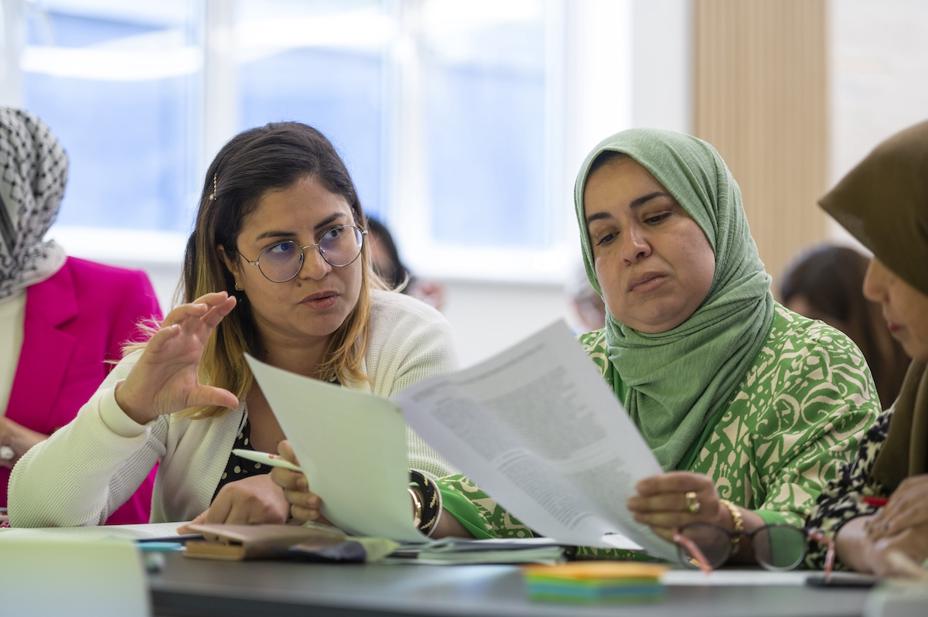
Something went Wrong
Try entering your email again or contact us at support@qfi.org
Try entering your email again or contact us at support@qfi.org
You’ll receive an email with a confirmation link soon.
Aug 20, 2024
By Kamilia Rahmouni
Last month, I had the opportunity to participate in the QFI/Oxford Research Forum “Research to Practice: Teaching Arabic in Schools” at the University of Oxford. The Forum brought together a diverse group of researchers, teachers, and policymakers to set priorities for the future of Arabic language research and to identify actionable steps for bridging the gap between theory and practice. A recurring theme in the discussions was that despite the existence of substantial research in the field, it is still mostly limited to higher education and adult learning settings.
As a higher education researcher and practitioner, this insight resonated deeply with me and prompted a reflection on fundamental questions that underpin my professional endeavors: why do academics engage in research? The straightforward answer is to advance knowledge and seek solutions to pressing human and societal issues, or to put it more succinctly, to contribute to the Common Good, which would ideally lead to human flourishing or eudaimonia.
Yet, while contemplating this, may I say, philosophical inquiry, I found myself questioning further:
Applying these insights to Arabic
With Arabic at the heart of the forum’s discussions, it becomes imperative to consider how these insights apply specifically to the field of Arabic language instruction. This consideration invites us to consider how research in this field not only pursues academic rigor but also embraces a profound dedication to the dissemination of knowledge. It prompts us to envision a clearer path that not only reaches but also engages the entire Arabic practitioner community.
These endeavors necessitate the development of robust dissemination strategies that go beyond paywalled academic publishing. These strategies should engage teachers, learners, community members and policymakers. This inclusive approach would facilitate the creation of collaborative research projects and ensure that findings are applicable across different educational settings.
By encouraging and preparing teachers to conduct action-research in their classrooms, and researchers to conduct research in and for schools, the gap between research and practice can be bridged and knowledge can be efficiently disseminated. This dissemination can be facilitated though various means such as workshops, webinars and teacher training sessions, and can be further ensured by leveraging technology and establishing mechanisms for continuous feedback loops from the Arabic instruction community to researchers.
Reflecting on the centrality of Arabic, it becomes clear that this language, which was central to the Forum’s discussions, should equally be central to research publications and knowledge-sharing, and should serve as a primary language for scholarly communication.
As we strive to democratize access to research and to enhance collaborative practices, it is always essential to remember that theories and research are just different facets of the educational practice, and that the common goal is to advance the teaching of Arabic as a global language and to holistically enhance the Arabic instruction ecosystem.
Kamilia Rahmouni is an assistant professor at the School of World Studies at Virginia Commonwealth University. Her interdisciplinary research interests include sociolinguistics, the use of AI in education, second language acquisition and teaching, discourse analysis, and curriculum design and development.

